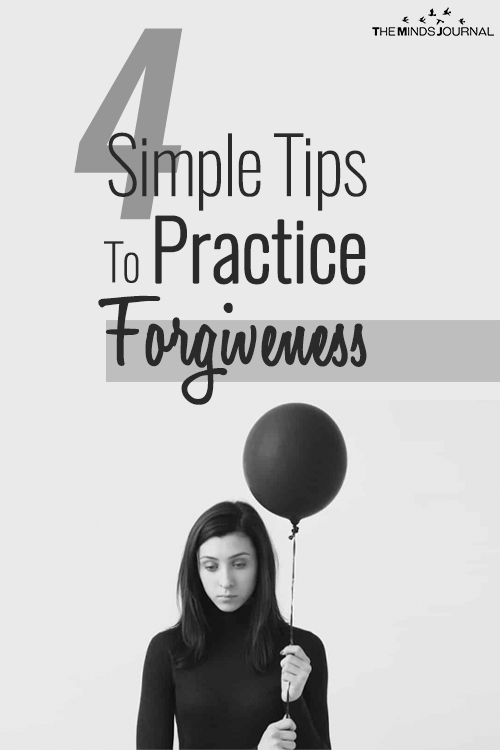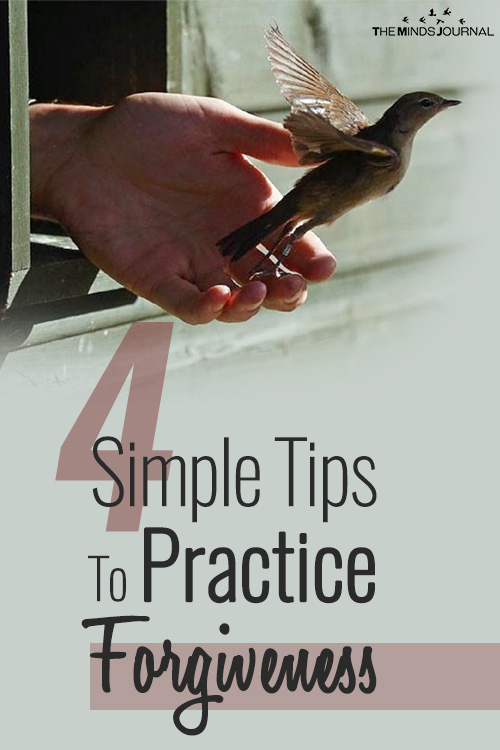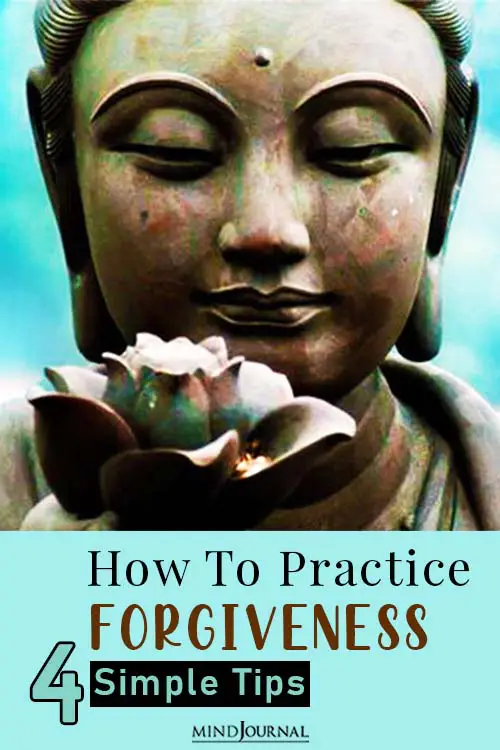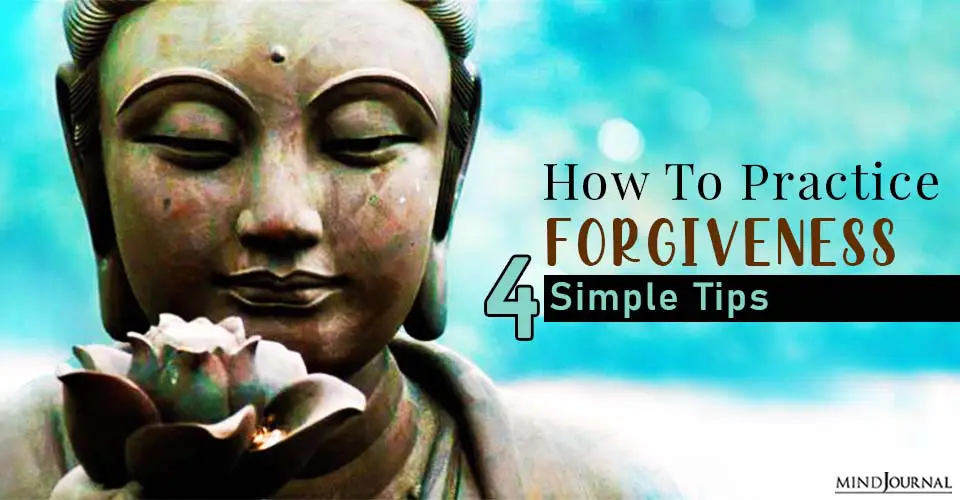“We think that forgiveness is a weakness, but it’s absolutely not; it takes a very strong person to forgive.” – T. D. Jakes
Many people believe that forgiveness is a form of weakness. But that’s far from the truth. Forgiveness takes a lot of strength and courage than holding on to a grudge. This is why not everyone can practice forgiveness despite it being one of the most important things you can learn in life.
“You are wrong, I am right.”
Humans are eternally flawed just as Alexander Pope said ‘To err is human’.
In your lifetime, you sure have been wronged by one or the other person who you couldn’t forgive yet. Be it your friend, your colleague, your ex-partner, or even your parents, letting go of the pain they inflicted on you is definitely not legitimate.
When you recall the entire context, you know for sure you do not need any logical justification to move on from the resentment and bitterness you hold against that person. You know they are wrong and you are innocent. That is all you need to perpetuate the grudge that you hold towards them.
You are not generally unaware of the counterproductivity of negative emotions that you hold against the offender, but you are not ready to give away your victim mentality. Every time you try justifying their behavior, you end up justifying yours.
Related: Understanding The 4 Stages Of Forgiveness
In a context where you know that you have been wronged, betrayed, manipulated, cheated on, or worse still emotionally abused and victimized, it’s justified for you to be vengeful. In fact, for you, the only possible way to punish the perpetrator is to never forgive him/her.
As trivial as the perpetration might be, the core belief behind being unable to forgive is that forgiving will lead to us condoning the actions of the offender, subtly giving them the cue that they have the power to mess with people’s lives and get away with it. On the other side, it makes the victim feel powerless to let go of the offender without punishing them.
But here’s the twist.
We can experience inner peace only when we learn to forgive those who have wronged us. Practicing forgiveness allows us to change our perceptions and let go of past trauma so that we can finally start healing ourselves.
“Inner peace can be reached only when we practice forgiveness. Forgiveness is letting go of the past and is, therefore, the means for correcting our misperceptions.” – Gerald Jampolsky
Why Forgive?
Forgiveness is a decision where an individual intentionally and willingly decides to let go of feelings of bitterness, hatred, vengeance and resentment towards another person who may have hurt them. One can forgive someone regardless of whether the person deserves to be forgiven or not. It is a process that marks the change in the victim’s mindset and attitude and the release of negative emotions, like aggression. The victim may even attain such a positive state of mind to wish the offender well.
But why wish offenders well? Why forgive their malicious intent and accept them as they are?
Because it’s about you and not them.
When we are hurt by someone, hoping for the person’s well-being is the last thing that comes to our mind. The initial, immediate response to being wronged is to wish the person suffering, sorrow, discontentment, and emotional turmoil. We often tell ourselves “I wish this person faces the same things that he/she made me go through.” “He/she should taste a dose of karma.” “I wish this person suffers as much as I did.”
“I wish this person faced the same things that he/she made me go through.”
“He/she should taste a dose of karma.”
“I wish this person suffers as much as I did.”
We lose our rationale as we are overcome with anger, frustration, and extreme aggression towards this particular person. We mistakenly start believing that every time we silently curse them, wish them ill-being, plan revenge on them, withhold affection, we are actually being in control and are successful in ‘punishing’ the other person for their deed. We believe the more we delay forgiveness, the harsher will be the lesson they learn.
But as we require some time to process our emotional pain and suffering, we give ourselves reasons to avoid forgiveness and focus more on taking revenge. We hope and expect that the wrongdoer will regret their actions and apologize so that we can forgive them. Unfortunately, most of the time the offender may not repent, keeping us from experiencing inner peace and happiness.
Ask yourself, are those suppressed, dysregulated negative emotions slowly spreading its bitterness within you, very constructive?
Is it making you feel better over time? Or is it making you lose your mental peace?
Perpetually holding on to the bitterness, constantly reminds you of the wrong that was done to you, which in turn significantly degrades a person’s mental health. Prolonged periods of holding on to negative emotions can cause profound stress, which over the long run, significantly diminishes the efficiency of the immune system.
You can experience headaches, tense muscles, and chronic pain due to negative emotions like stress, anxiety, anger, and resentment. Studies have found that “stress can exert various actions on the body ranging from alterations in homeostasis to life-threatening effects and death.” {1} Forgiveness empowers you to bring back happiness and laughter into your life.
As Joan Lunden says,
“Holding on to anger, resentment, and hurt only gives you tense muscles, a headache, and a sore jaw from clenching your teeth. Forgiveness gives you back the laughter and the lightness in your life.”
The more you hold on to grudges, the more you destroy yourself. Letting your emotions and actions be influenced by the offender’s actions results in the worst possible situation – it gives the offender the power to control you. Forgiveness helps you regain control over yourself as you let go of the arrogant resentment clinging to you.
Related: 8 Reasons To Forgive And Why It Matters
Always remember that withheld anger is like a fire that chars you from within while it was meant to char someone else.
Forgiveness is crucial, not for the person who did you wrong, but for yourself. When you finally let go of the toxicity and bitterness you were holding back, you finally let yourself breathe freedom. Forgiveness gives you exultation and a chance to uncage yourself from your own rancor.
So, forgiving the person is not about losing your self-respect, power or control, rather about restoring positivity back to your life.
Forgiveness is primarily a gift you give yourself first before giving it to the other person.
Robin S. Sharma says, “Forgiveness isn’t just a blessing you deliver to another human being. Forgiveness is also a gift you give yourself.”
How Do You Go About Forgiving Someone?
Forgiving someone might take your time and efforts. But don’t forget, you are doing it for yourself, not for the other person(the other person doesn’t really care if you forgive him/her or not!).
The following are 4 tips that might help you let go of things for a lighter future:
1. Introspect.
Forgiveness is a voluntary action but it should be internally motivated. Nobody else can force you to forgive someone. It should organically come from within yourself.
Ask yourself…
1. How do I really want to feel?
2. Am I secretly enjoying this bitterness inside me?
3. Does this anger, hatred and frustration towards the concerned person make me feel contented?
4. What kind of a person am I?
5. What are my values?
6. Why am I giving in to negative emotions?
7. Do I want to hold grudges against the person just to feel in control or let go and be happy?
Introspection helps you tap into the root cause of you holding on to the bitterness as it fosters self-awareness and understanding of our behavior, actions, and attitudes.
2. Thank the offenders for the lesson.
Having a disappointing experience with a person you trust isn’t the best feeling in the world. Every coin is two-sided so is every bad experience. Forgiveness becomes easier when you take the offender’s actions in a positive light.
Be thankful to the person who has taught you a lesson in life. And it is because of him/her that you could learn from your mistakes and never repeat them again. It just helped you move a step closer to resilience.
Related: Forgiveness Is Not Second Chances: Forgiveness is Not Forgetting
3. Step out of your victim mentality.
The easiest thing to do is blame others and circumstances for everything that happens to you. Stop for a while and peek within. Whining, complaining, cursing, and planning revenge doesn’t solve anything. Instead, take accountability and responsibility for your choices.
When you start accepting the fact that you control your life and you have the power to make better choices to forgive and move on, you will gradually start witnessing change. Forgiveness thrives on empathy and compassion, while resentment thrives on ego, pride, and self-pity.
4. Give up on being ‘right’.
People who try to be too strict with what is right and what is wrong will never be able to forgive a ‘wrongdoer’. You have to know that your happiness is more important than your need to be a perfectionist. Let go of your past as no matter what means you take, you cannot change it. You can only make wise choices for the present.
However, I would like to add that certain behaviors (rape of any form, sexual abuse, sexual harassment at the workplace, domestic violence, homicide, bullying) are illegal and need to be dealt with by the jurisdiction. Forgiveness is never an option if you are a victim of such behaviors. But this also doesn’t give you the pass to take things in your hand. The legal authority is responsible for dealing with such issues. All you can do is keep your fighting spirit alive to get justice.
Forgiveness necessitates you to be selfless, empathetic and self-loving. But it is one of the most powerful resources available to you.
Reference: 1. https://www.ncbi.nlm.nih.gov/pmc/articles/PMC5579396/











Leave a Reply
You must be logged in to post a comment.